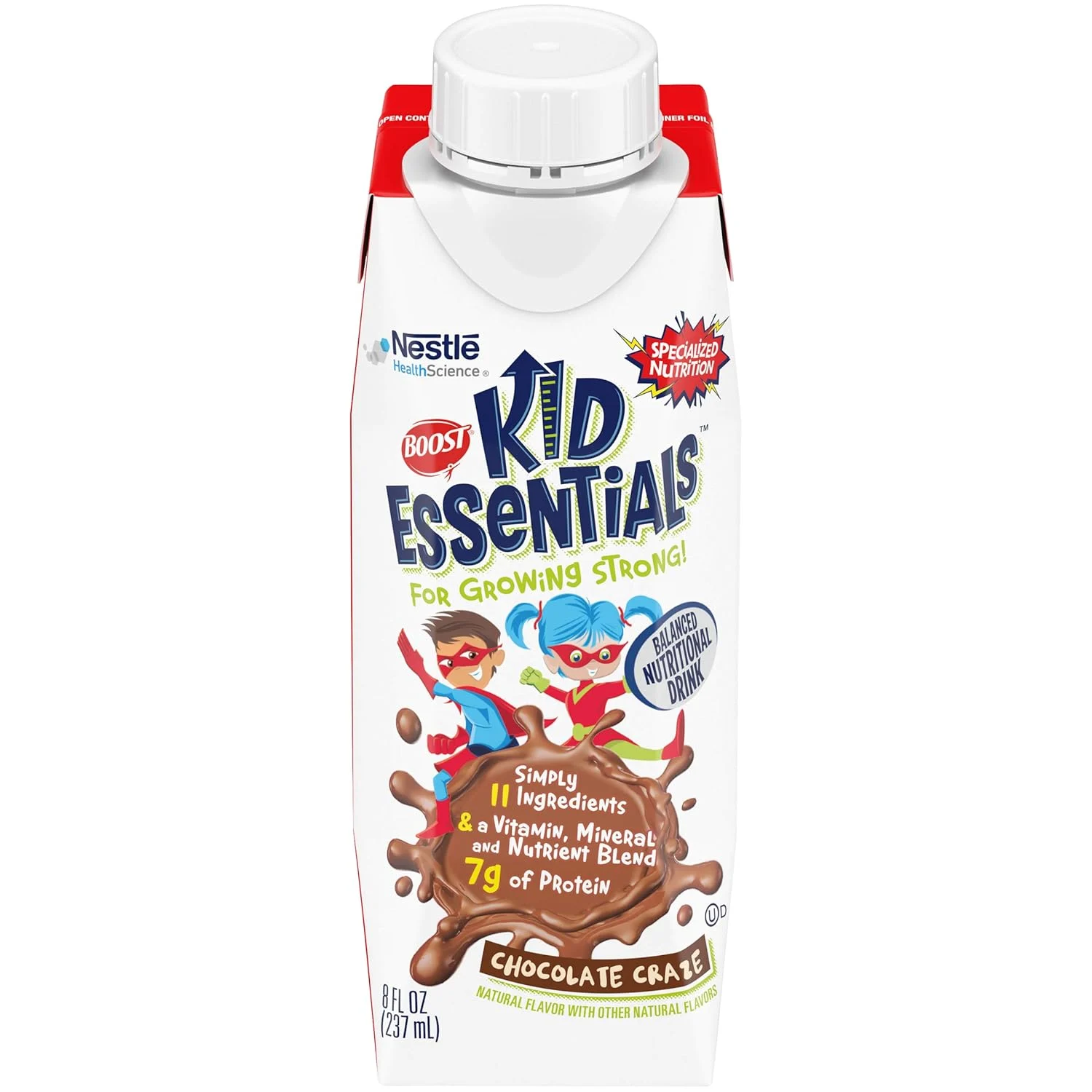BOOST KID ESSENTIALS® FOR GROWING STRONG! CHOCOLATE CRAZE
nutritional drink • For 6-12 month old babies • Consumable 🍝
Product Images
Product Photo

Tap to enlarge
Ingredient List

Tap to enlarge
Can older babies eat BOOST KID ESSENTIALS® FOR GROWING STRONG! CHOCOLATE CRAZE?
Check for Different Age (6 available)
Ingredients Analysis (39 found)
Common Questions About BOOST KID ESSENTIALS® FOR GROWING STRONG! CHOCOLATE CRAZE
Safe for older babies? BOOST KID ESSENTIALS® FOR GROWING STRONG! CHOCOLATE CRAZE
BOOST KID ESSENTIALS® FOR GROWING STRONG! CHOCOLATE CRAZE is not recommended for 6-12 month old babies due to potentially harmful ingredients.
What ingredients should I watch out for?
We analyzed 39 ingredients in BOOST KID ESSENTIALS® FOR GROWING STRONG! CHOCOLATE CRAZE. 4 concerning, 6 caution. Check the detailed analysis above for specific concerns.
Is this appropriate for older babies to eating nutritional drink?
The appropriate age depends on the specific ingredients. This analysis is for 6-12 month old babies. Use the age selector above to check other ages.
⚠️ Important Disclaimers
Product Recognition: Product names are identified by AI and may be incorrect. Always verify product identity yourself.
Safety Analysis: Evaluations are for research only - consult pediatricians for medical decisions.
No Guarantees: Results may be incomplete or inaccurate. Do not rely solely on this analysis.
